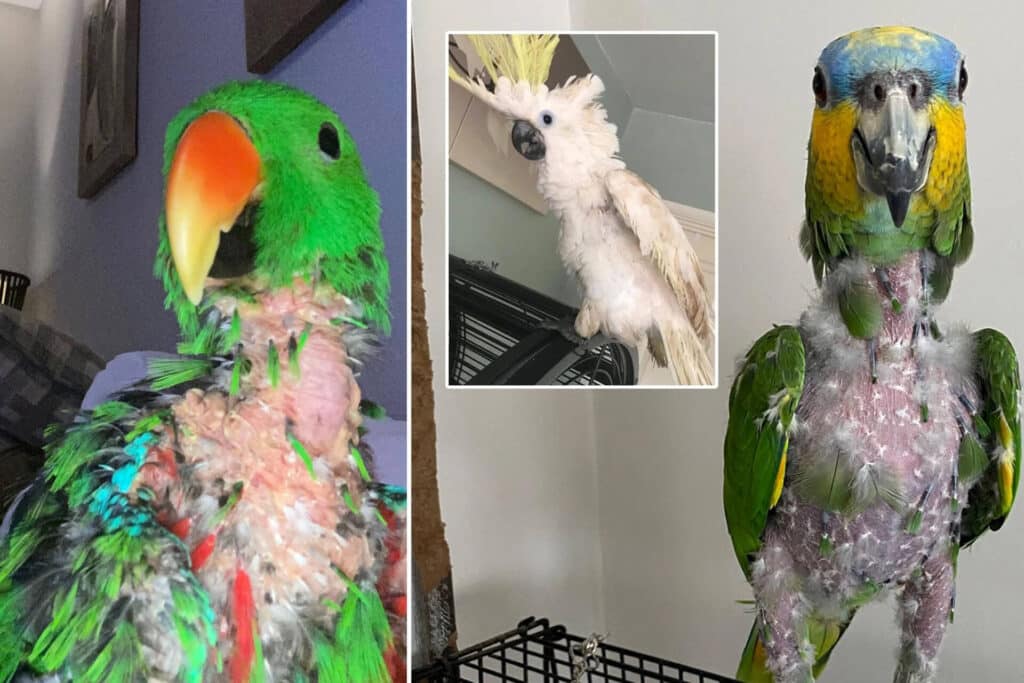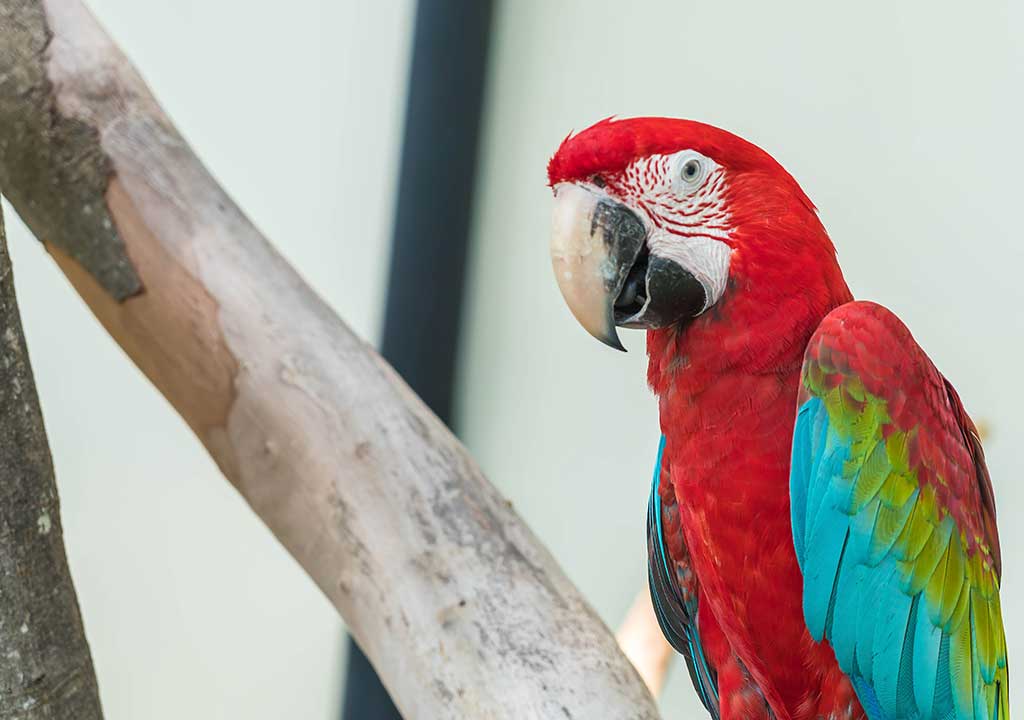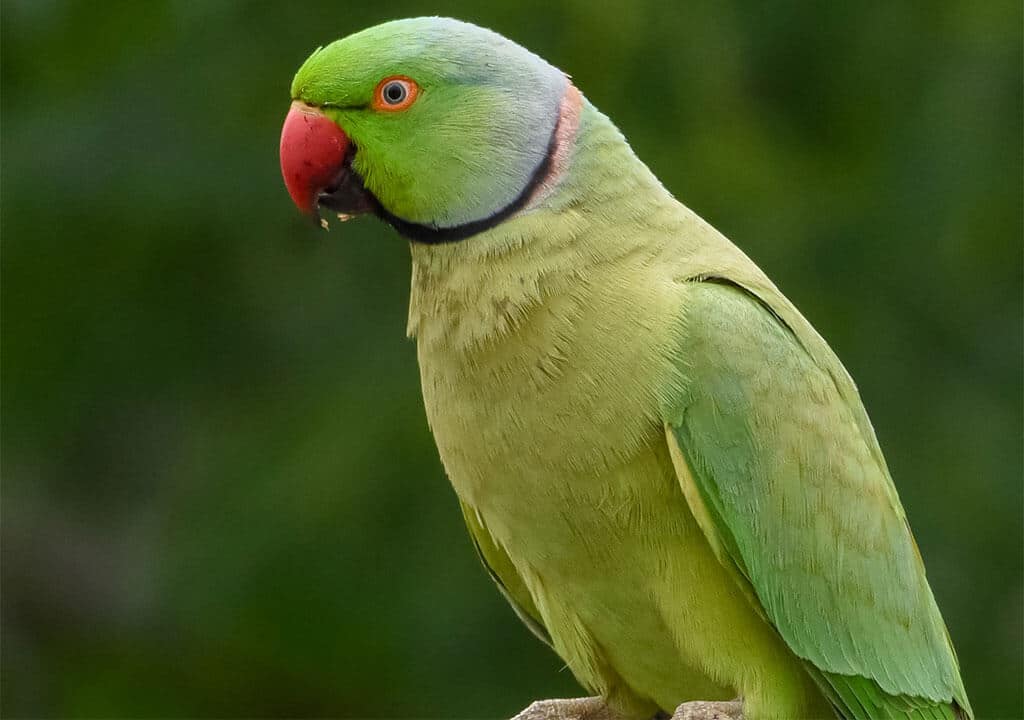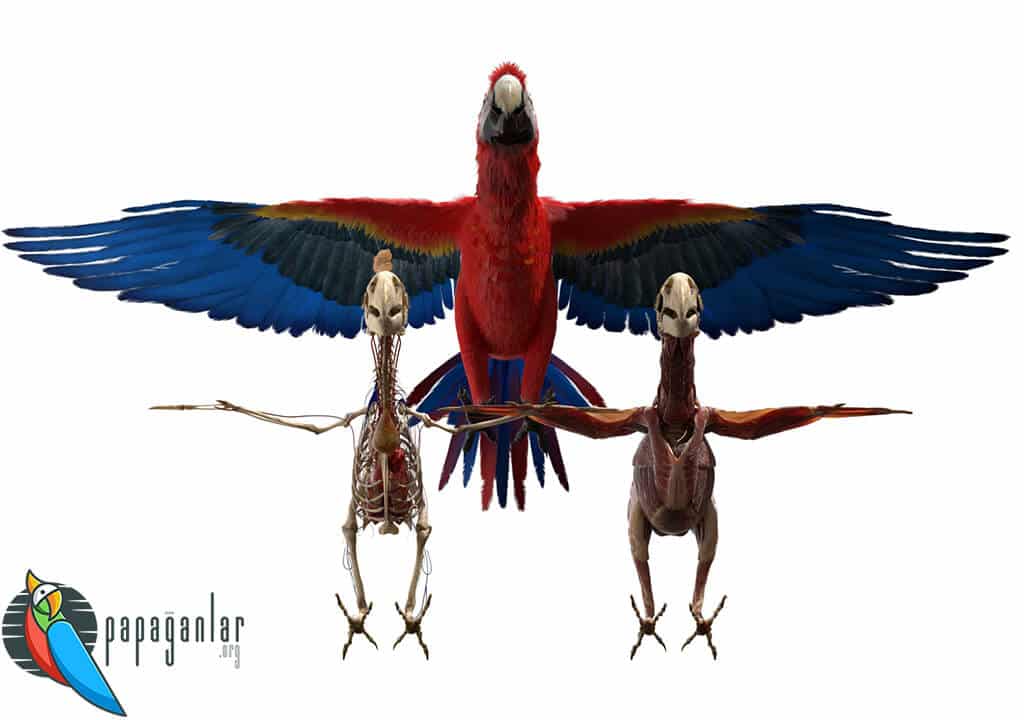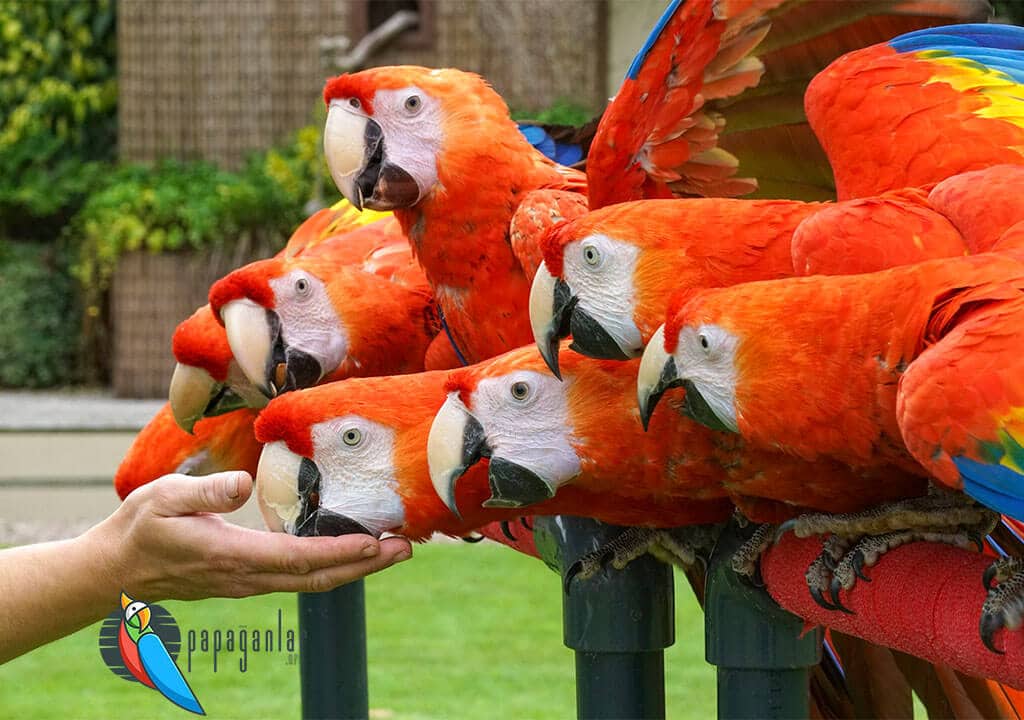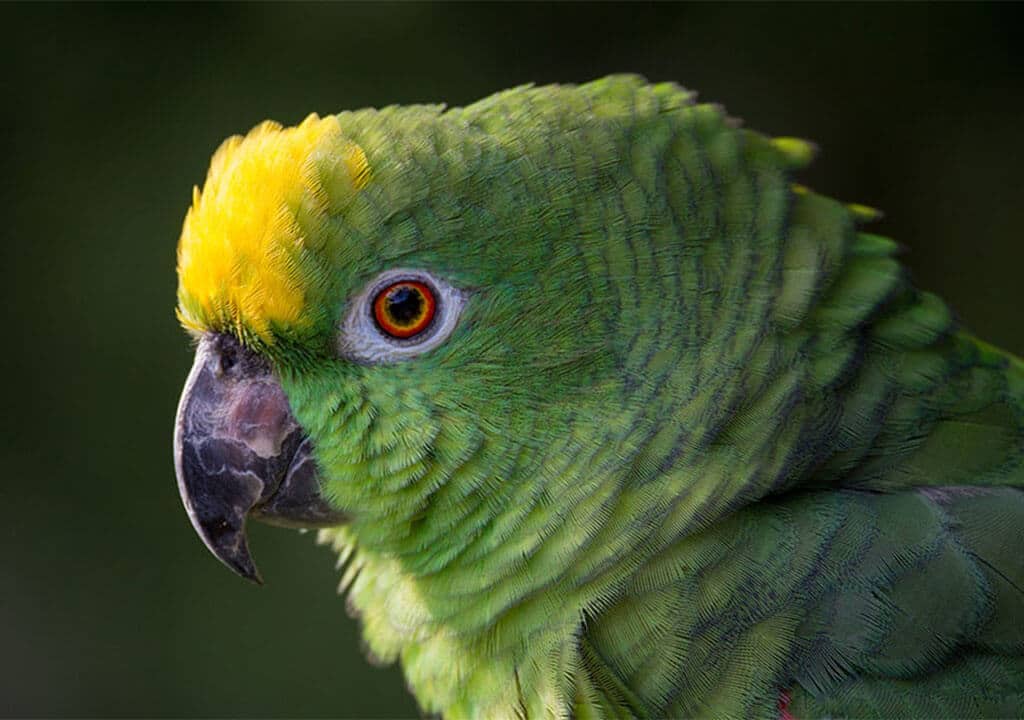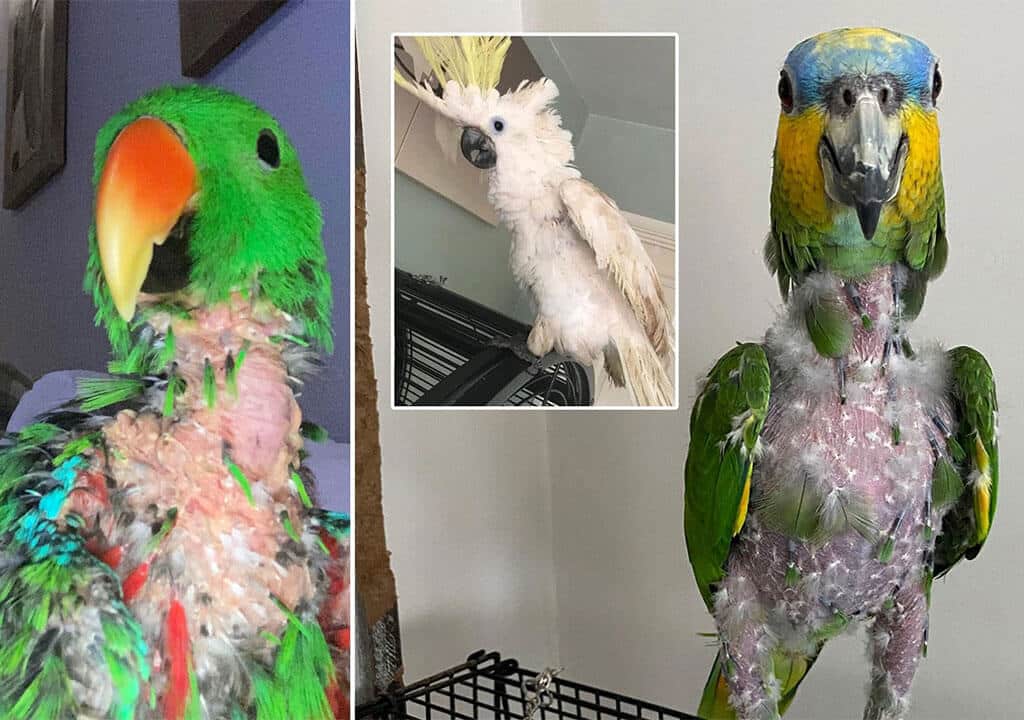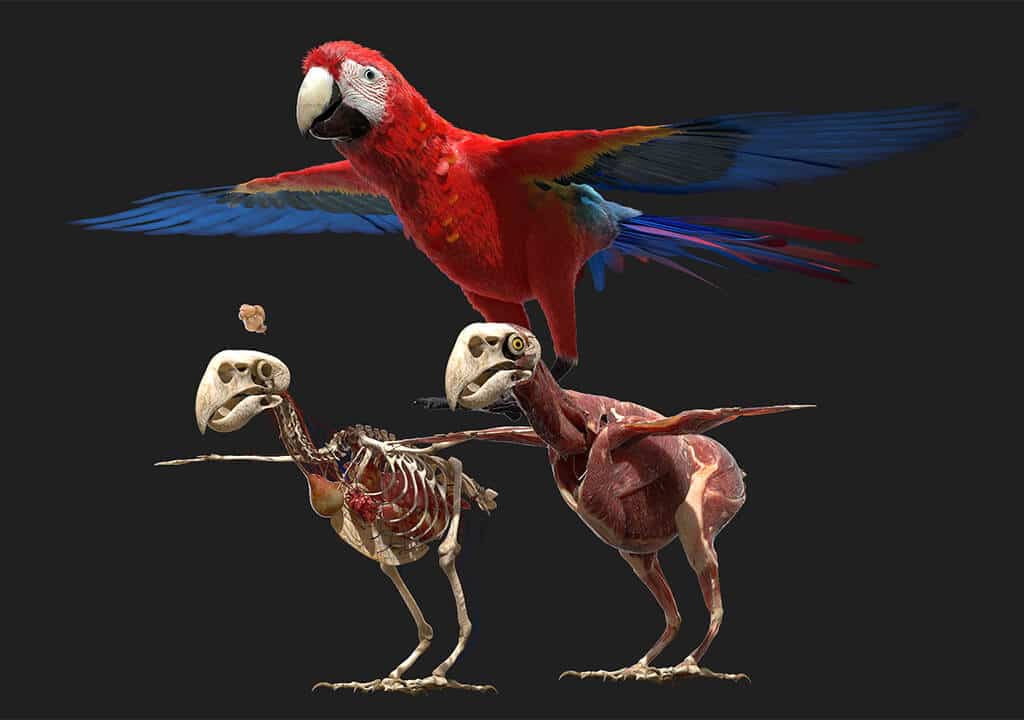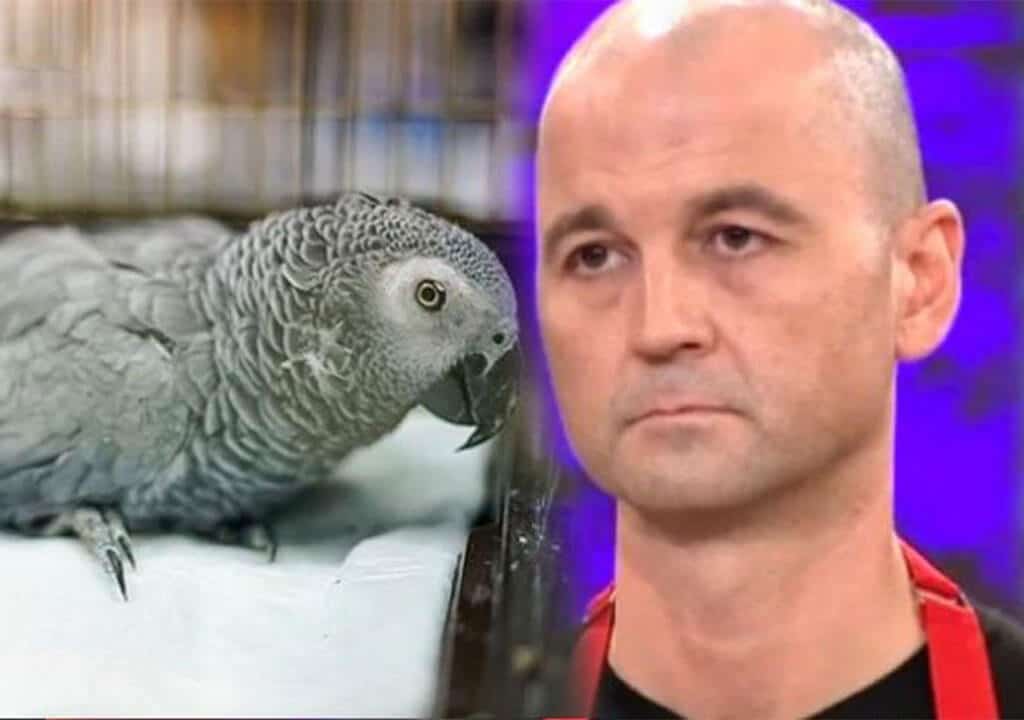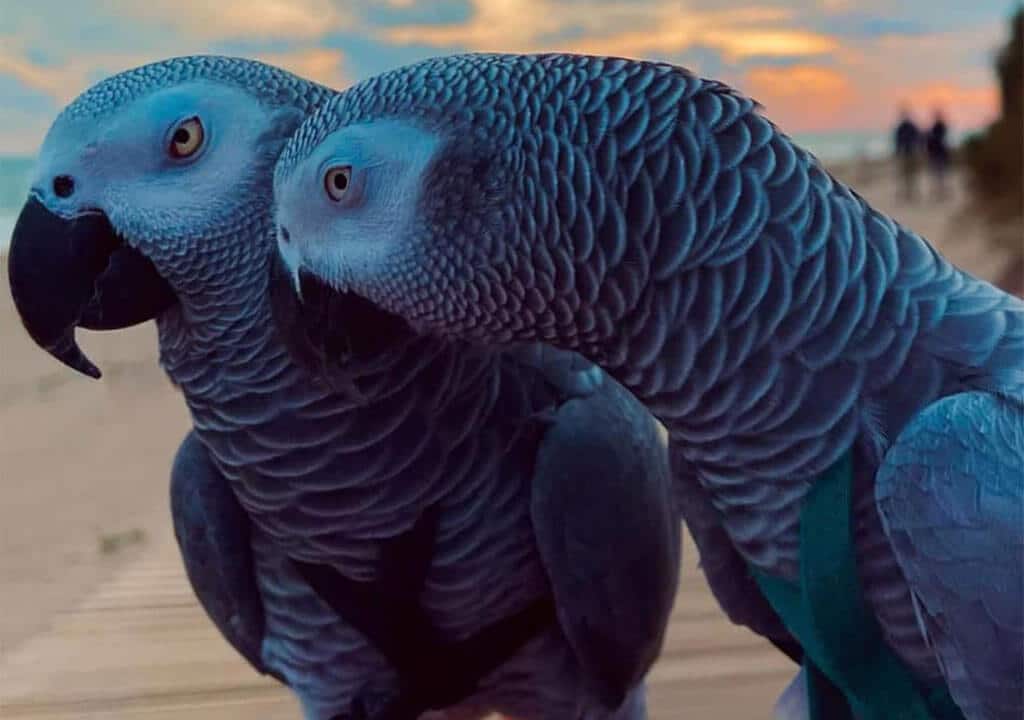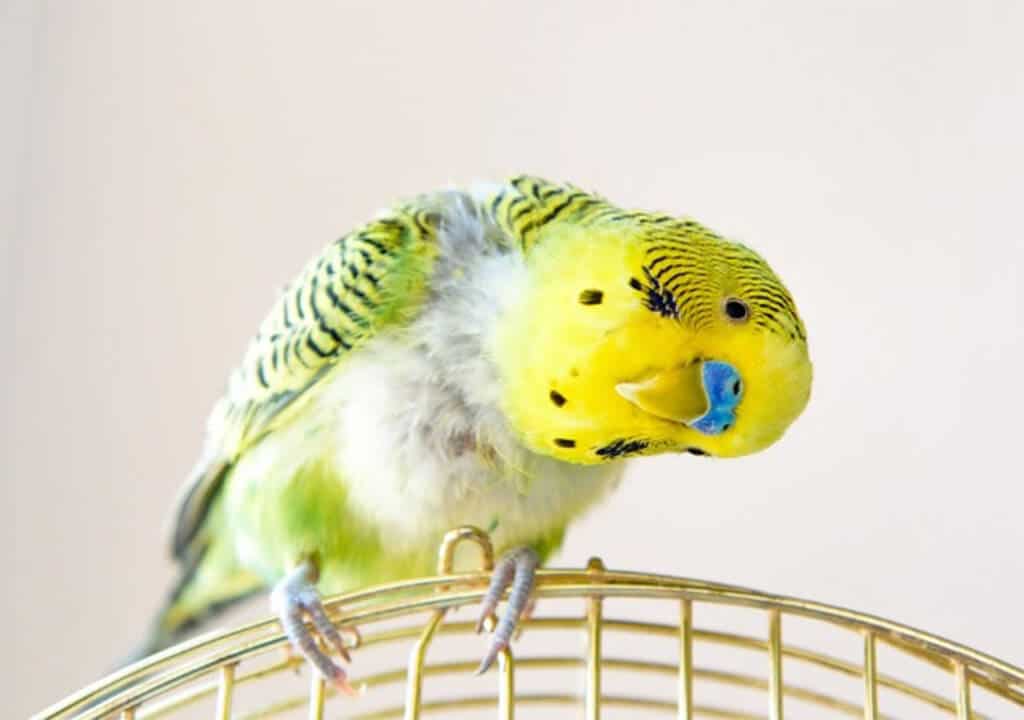Blog
parrot plucking feathers
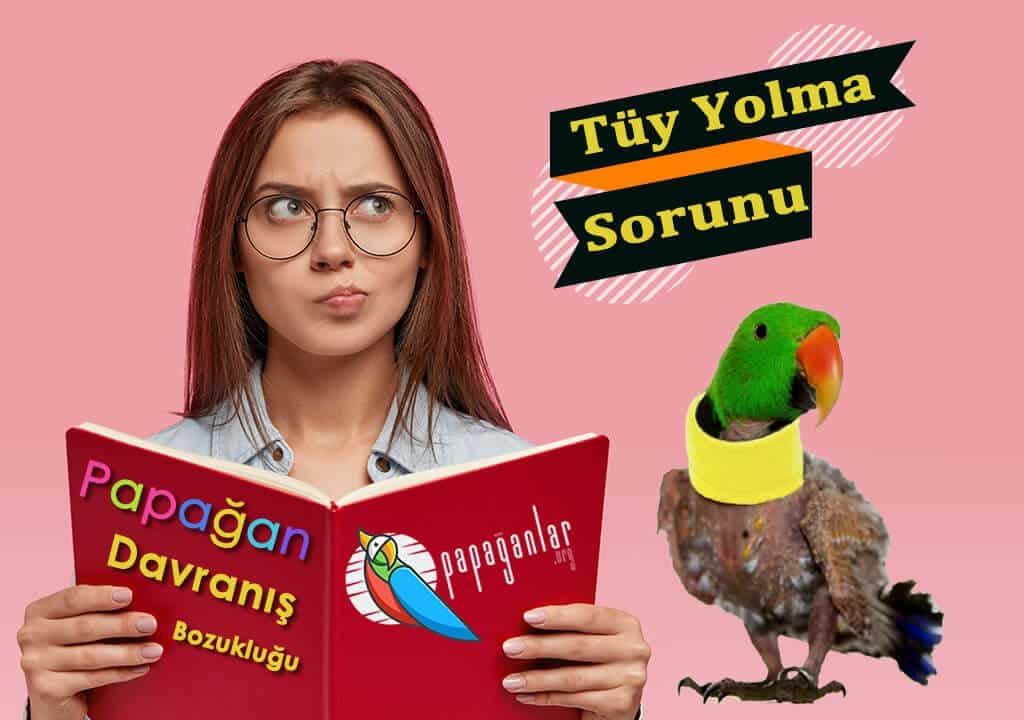
Papağanlarda sıkça rastlanan davranış bozukluklarından biridir. It is often difficult to pinpoint the cause. While everything is going well, the parrot, which sees the necessary attention and care by its owner, may suddenly start plucking feathers.
Hair plucking should not be confused with normal moulting. Normally, bird feathers, like human hair, have a certain lifespan. This period varies between 6 months and 2 years, depending on the type of feather. At the end of its life, the hair falls out on its own. In the place of the stem, the initial formation of the new hair, which we call the follicle, has begun to sprout. It grows in a short time and completes the place of the shed hair. In general, factors affecting feather health also affect the growth of new feathers positively or negatively.
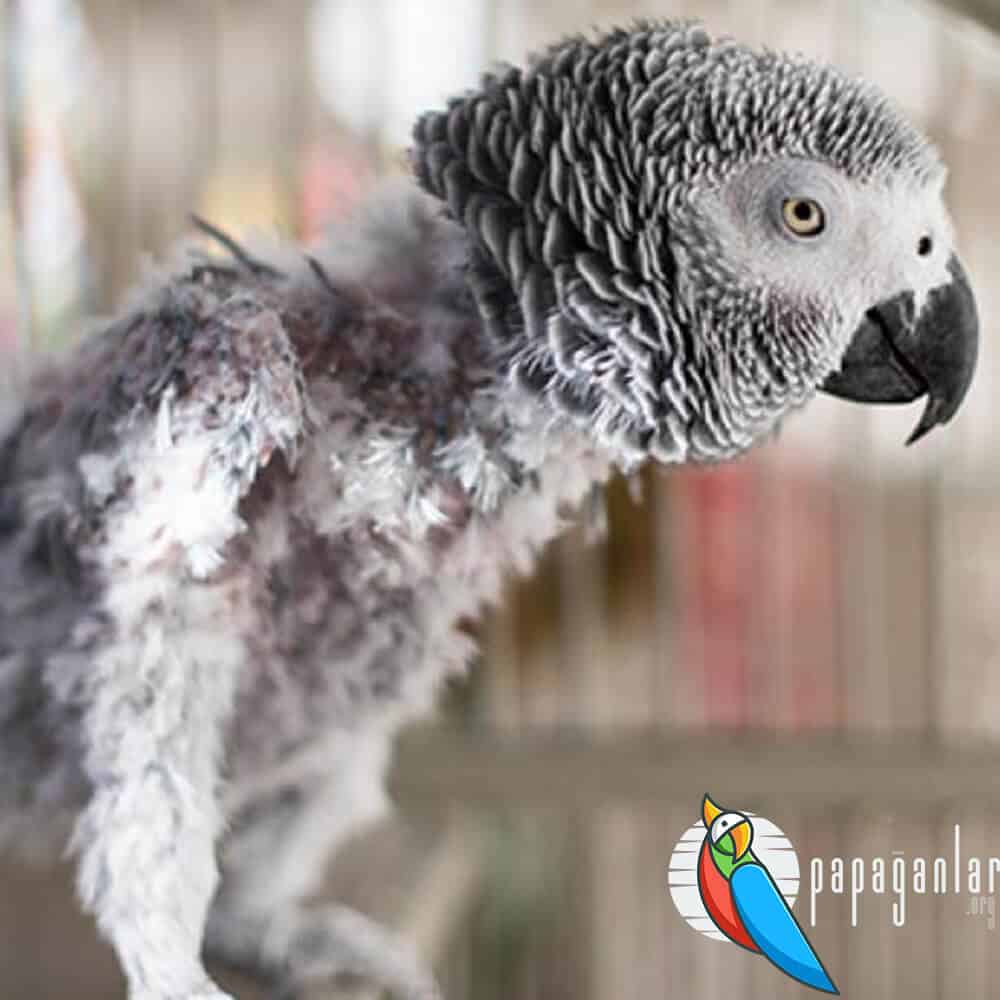
The most important differences between plucking and normal shedding are;
- The normal amount of shedding is considerably less than the amount of plucking.
- In normal casting, the hair removal time is not simultaneous. The feather that expires is shed. In plucking, there is a simultaneous reduction.
- In normal casting, the feathers are shed from different areas. Therefore, when you look at the parrot, you cannot see a decrease. It will be replaced by a new one. Since hair plucking is a voluntary event, a visible decrease in a certain area draws attention. Depending on the severity of the behavioral disorder, it may present as a severe picture, from the baldness of a localized region to the plucking of the whole body, except the head (because it cannot reach the head with its beak).
- Hair pulling is usually associated with psychological and metabolic diseases.
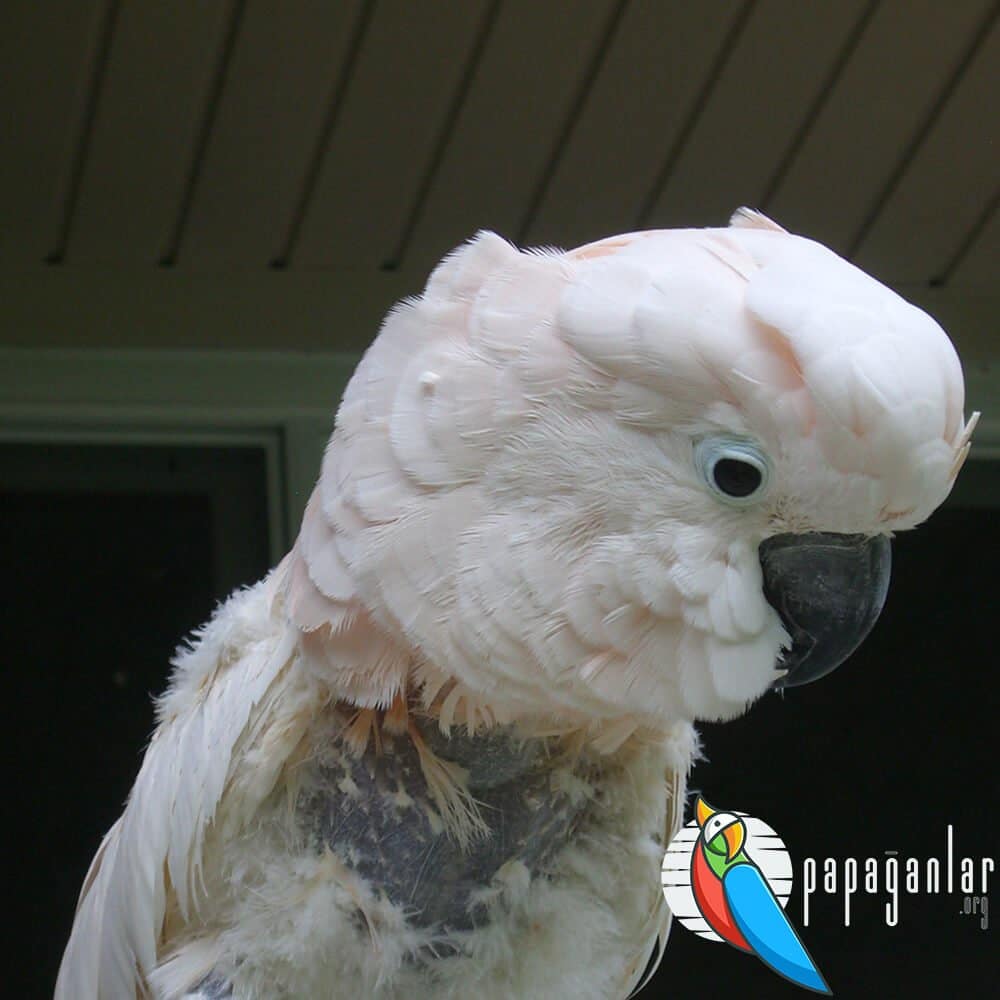
The plucking can be of different sizes. Some birds pluck the feather from the skin surface, while others break it by the stem. The handle remains on the skin. The reason for these two different plucking is related to the main problem. For example, if plucking has started due to itching due to the lack of moisture in the environment, they will break more hair from the stem. In psychological disorders, the hair is plucked from the skin as a whole. Plucking is usually started from the wing and tail feathers. Then they pluck the back and chest feathers. The hairs on the head and neck area remain intact.
There are many factors that affect feather health. These include not having a balanced diet, insufficient intake of minerals and vitamins, low humidity of the environment, not regularly wetting the feathers, living things parasitic on the feathers, various metabolic and blood diseases, insomnia and some environmental and psychological factors. The presence of one or more of them negatively affects the health of the feathers, causing them to deteriorate from place to place, and pushes the sick parrot to pluck feathers. In such a case, you should first go to the veterinarian and investigate whether the plucking is due to any disease with various tests. If a disease is not found, then one should turn to psychological factors.
The most important reason that triggers feather plucking is psychological reasons. These reasons are divided into two as environmental and behavioral factors.
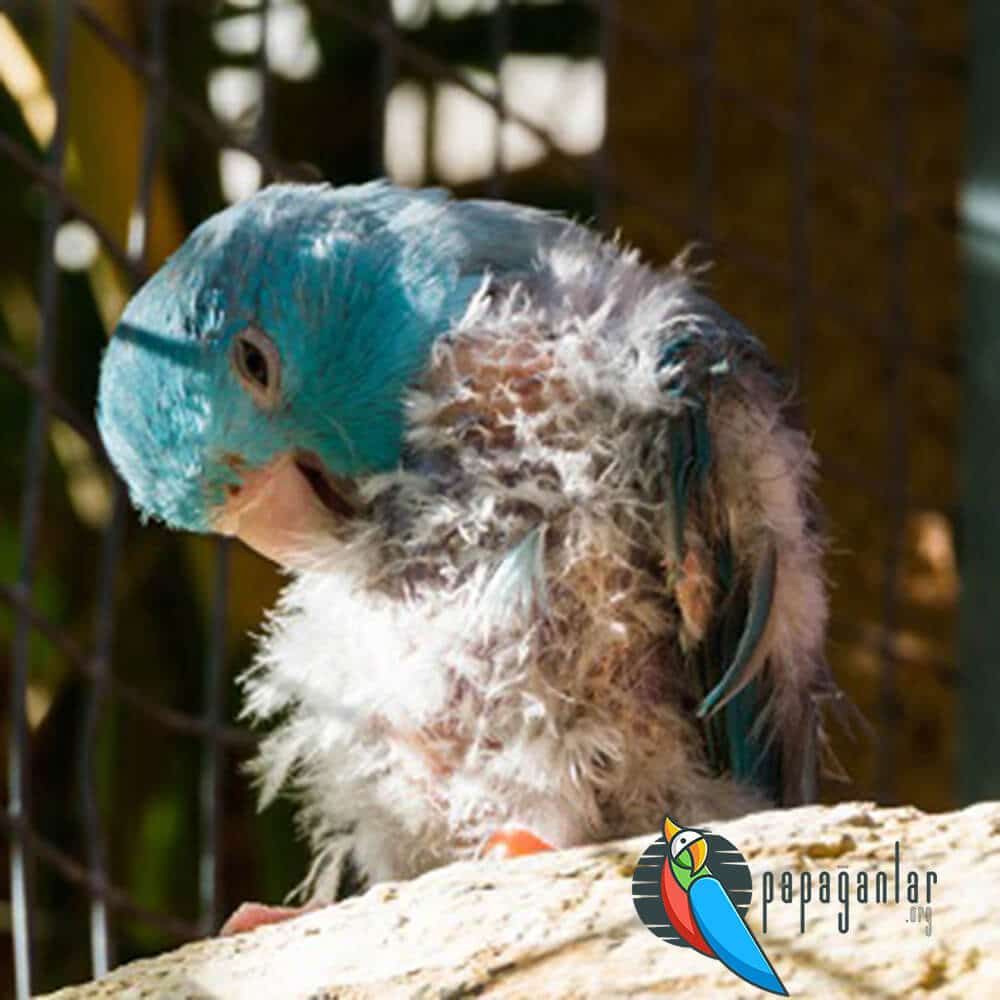
Environmental Factors in Parrot Plucking
The first days of the parrot you just bought home are very important in terms of affecting its psychology in the next life. The location of the cage in the room has a certain importance in the communication it will establish with you. But this position should not show the features that will put the parrot in trouble. It is very difficult to detect these problems in the first days, a good observation is required.
Changes in location within the house can also cause hair pulling. Moving from an environment where all family members are present to a quiet environment can cause distress. Parrotsaccustomed to herd psychology perceive these position changes as self-exclusion from other individuals. Abandoned by others in the natural environment, parrotsbecome prey to birds of prey. For this reason, your parrot is also afraid of death and she gets stressed and starts pulling her feathers.
The opposite is also true. A parrotthat has just been caught in nature and has not yet gotten used to its cage environment is extremely timid as a result of the traumas it has experienced in the early stages. If this parrot’s cage is placed in an environment where people come and go, the parrot, who thinks that she will be harmed, will get stressed and begin to pluck her feathers.
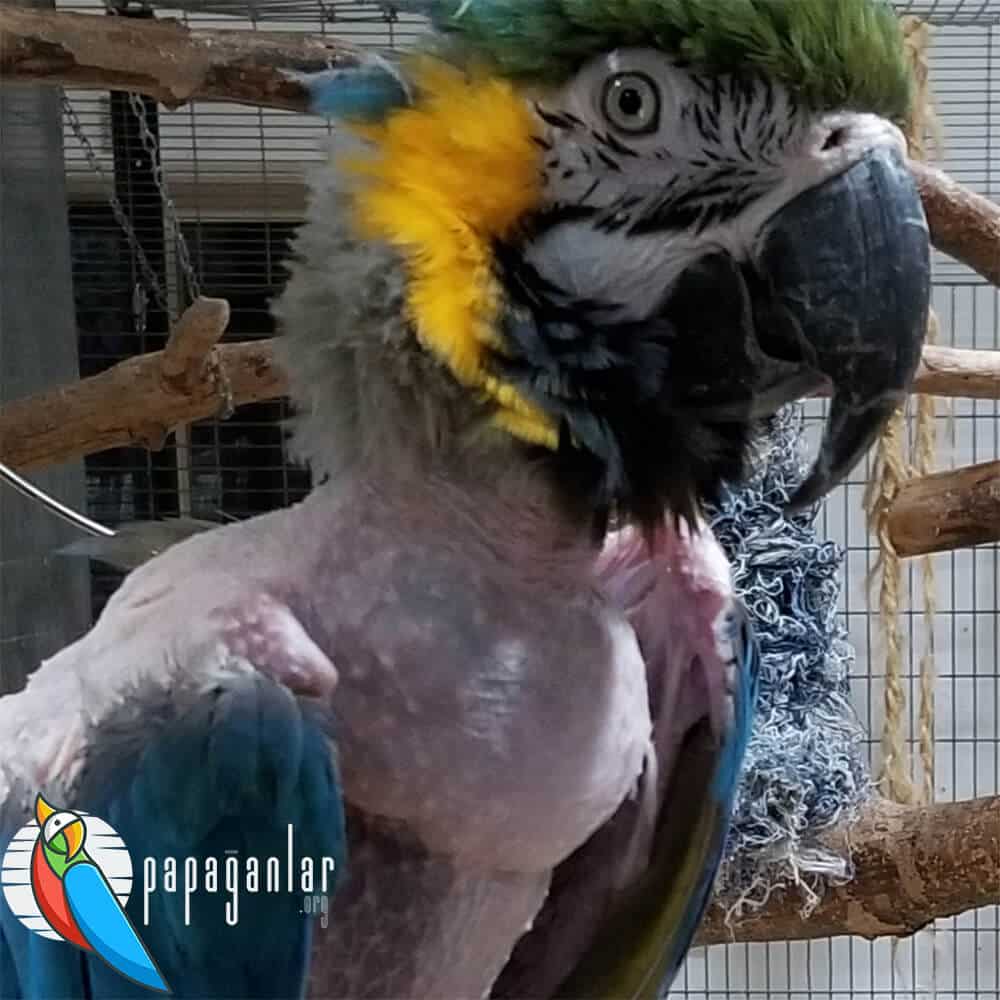
Noise and vibrations that occur during home repairs and renovations are another cause of feather plucking. In this case, the parrot should either be temporarily left somewhere else or moved to the quietest and quietest part of the house. Most parrots in earthquake-affected areas have experienced feather plucking.
The lighting fixture with a long cord placed on the ceiling may cause distress to the parrot and cause plucking as it gives the impression of a snake attacking from above.
The low humidity of the environment is another environmental factor that triggers plucking. The air of the forest areas where parrots live is quite humid. Especially in areas where gray parrots live, an average of 250 kg per m2 per year. it is raining. The heaters used in the houses, especially in the winter months, dry the air of the environment and reduce the humidity. The flakes on the hair roots that occur due to the drying of the skin cause itching. The hair pulling habit that occurs during scratching becomes an established behavior over time. Therefore, the humidity of the environment should be kept high. Humidity between 50% – 60% is ideal. Care should be taken that it does not fall below 40%. In order to achieve this, the room should be steamed with hot water during the day in winter, and if the house is heated, a container and water should be placed on it. In houses with a stove, the kettle should not be missing over the stove. In order to keep the feathers moist, the feathers should be wetted by spraying twice a week in winter and twice a day in summer. Especially in the winter months, spraying is done at noon because of the danger of the parrot getting sick. The ambient temperature is brought to 22℃. In order to allow the hairs to dry after spraying, care should be taken to keep the ambient temperature constant at this temperature for at least 2 hours.
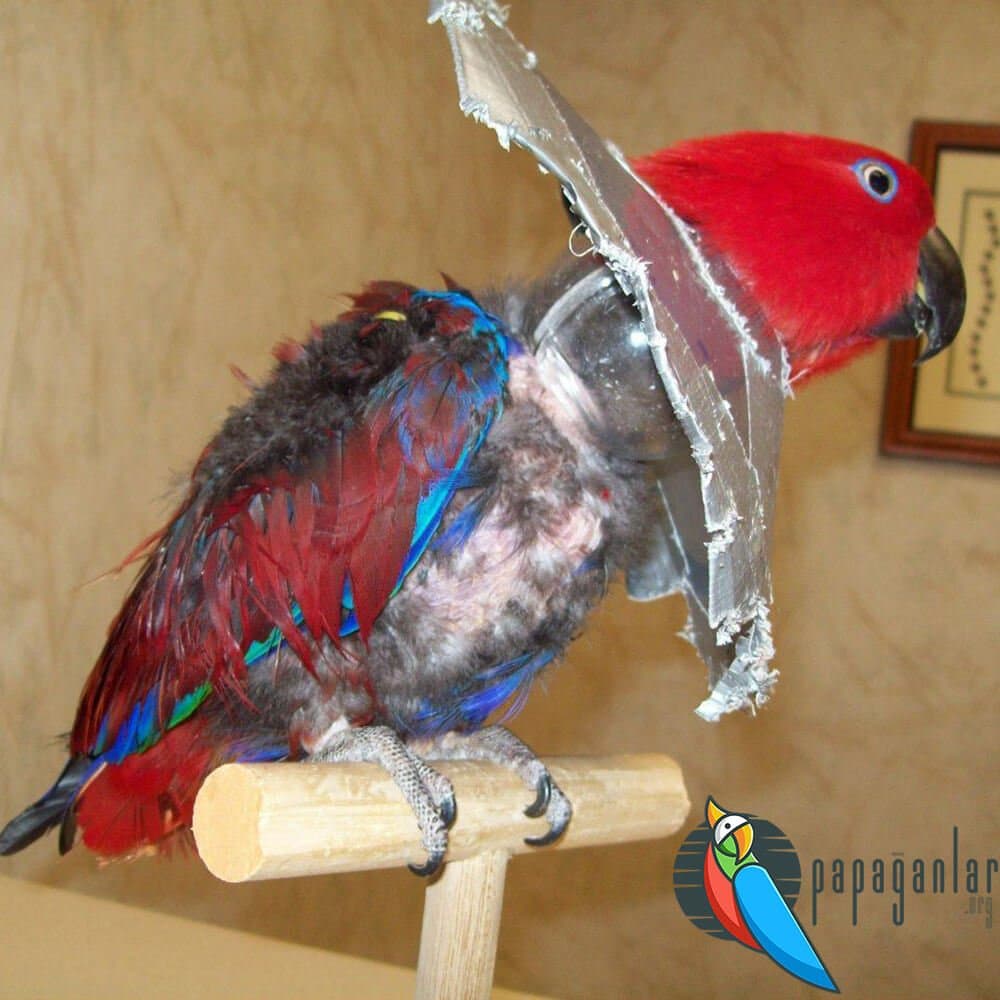
One of the reasons for plucking, especially in young parrots, is that they don’t get enough sleep. Parrotsthat sleep in the natural environment from dark to dawn, rest for a total of 10-12 hours. For this reason, it should be ensured that the parrot sleeps for at least 10 hours in the home environment. However, the fact that the cage is in the environment where all members of the family are present is an obstacle to early sleep. Having the environment in which the cage is located in a quiet room is an obstacle to falling asleep early. If the cage cannot be moved to a quiet room, the parrotcan be placed in a small sleeping cage and placed in another room. At bedtime, the cage can be covered with a dark cloth. Thus, the parrotwill notice the daylight later and sleep more.
Another environmental factor is air pollution. Especially in the environment where the parrot is present, smoking in large quantities triggers feather plucking. Birds, which are extremely sensitive to respiratory system diseases, need to be protected from cigarette smoke. It is very important for health to ventilate the room in which it is located at least once a day.
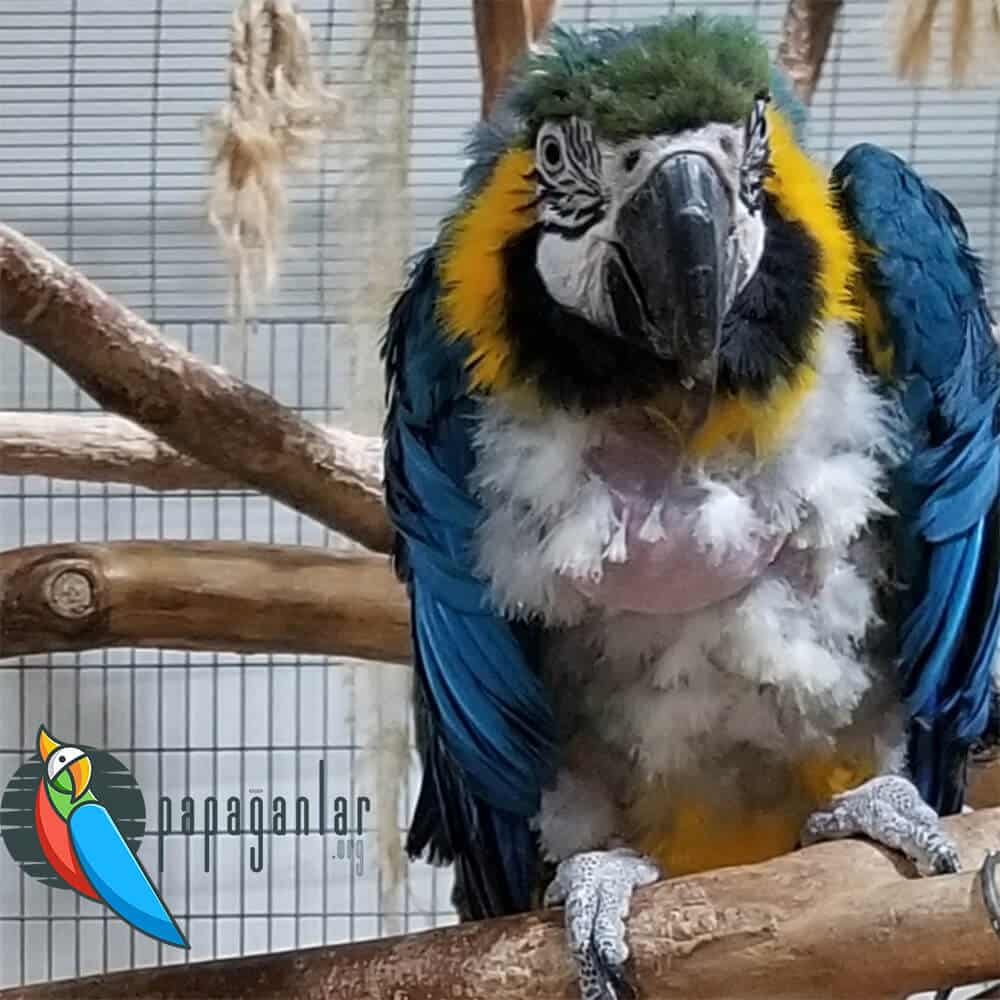
Behavioral Factors in Parrot Plucking
The most important behavioral factor is boredom. Parrots, which are extremely active in nature, spend their days in a cage at home, waiting for their family members to arrive. Such an environment is rather unpleasant for them, as they love action and play. For this reason, having the toys that your parrot will play around with while you are away in the cage will provide her with an environment of busyness. Toys should be changed every day to prevent boredom. You can buy toys from pet stores, or you can make your own out of wood. A piece of branch that you will hang on the bottom of the cage can keep it busy for a long time. By gnawing wood, you also help keep the beak in shape. Talking to the plastic animal figures you will put in the cage, you will have a good time with them, and you will not get bored. Every day, toys should be checked while changing, worn ones should be replaced with new ones.
If your parrot stays home alone all day, you can get a second parrotso she doesn’t get bored. In such a case, your parrot learns to speak difficult because it will take care of the other, or if it speaks, it may reduce it. But if you still want her not to be alone, you can take a different breed (such as a gray parrot (african grey parrot) and a cockatiel) with you.
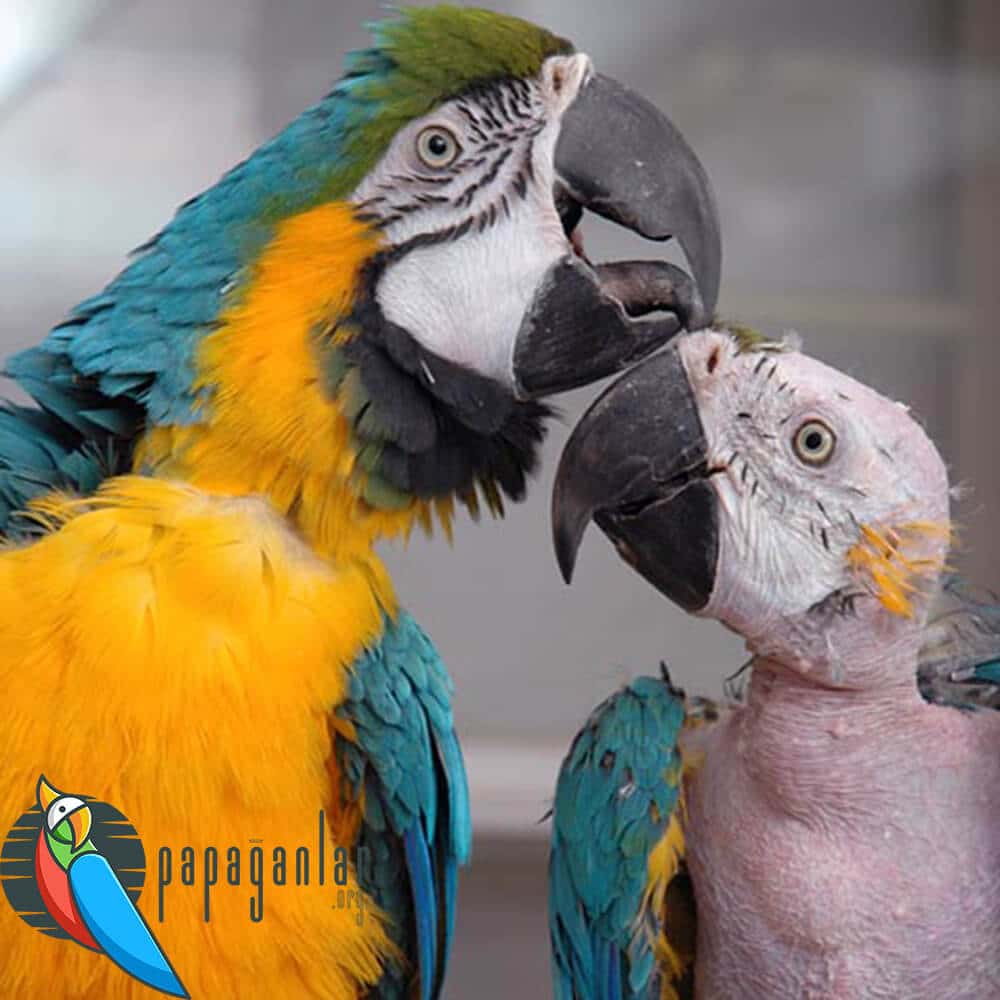
Apathy is another behavioral factor. Both because they are social creatures and as a condition of their herd life, parrots expect other family members to take care of them. Therefore, if you are not at home during the day, you should take care of her for at least 15-20 minutes when she arrives. In case of extreme indifference, she may feel stressed out by the herd. Therefore, it wants to attract attention and the feather starts to pluck.
In an environment with few birds, your parrot may start plucking if it feels insecure. She may be jealous that her owner is more interested in others. The purpose of plucking here is to draw attention. Therefore, if you have more than one parrot, you must give equal attention to your competitive birds.
The downside is that regardless of the mechanism that pulls the trigger in plucking, if this behavior bug settles, the plucking habit can persist even if the factor is removed. For this reason, before this behavior becomes a habit, it should be prevented from becoming chronic by taking necessary precautions.
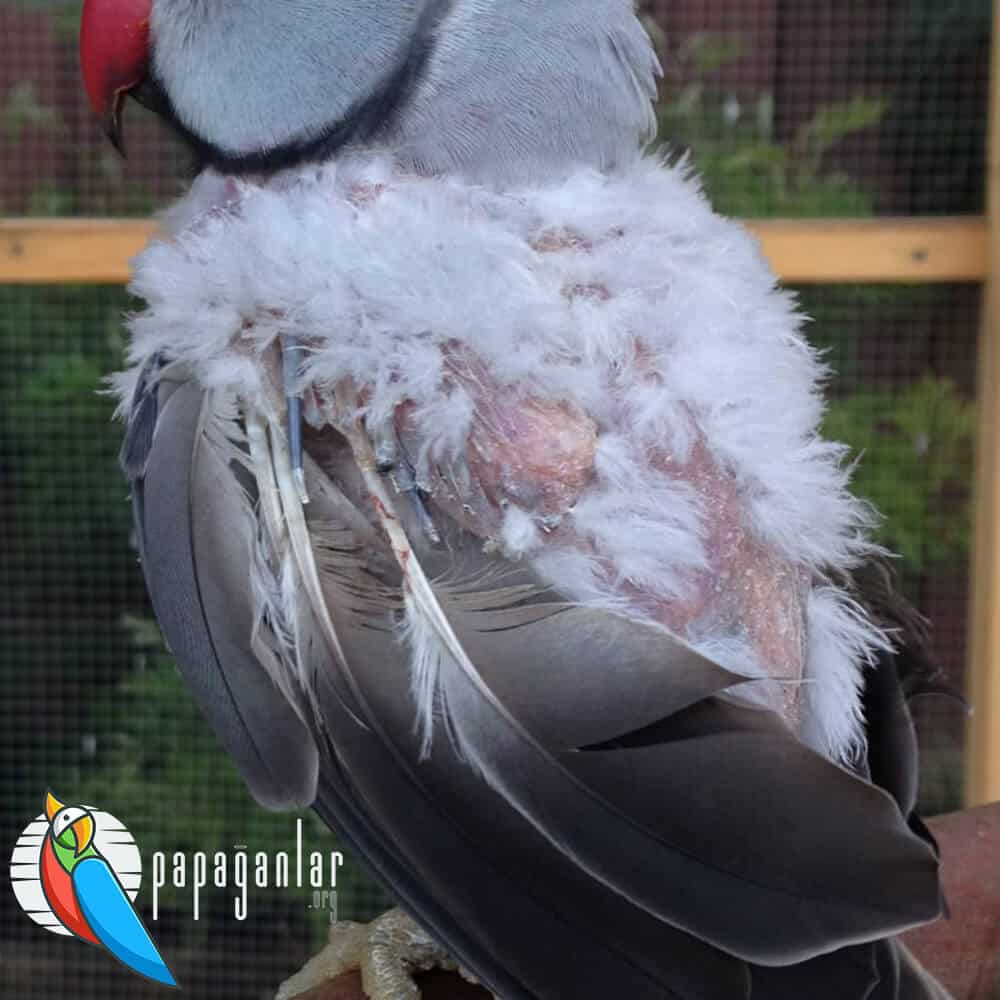
Novice parrot owners try to stop their parrotsby yelling if their feathers are plucked. This can be perceived as a reward for the parrot, who loves excited behavior and fun. Waiting for the same excitement again, the parrotmay want to attract the attention of its owner by continuing to pluck feathers. Over time, this becomes an established pattern of behavior and makes treatment very difficult.
If a Afrcan grey parrot has a habit of plucking and this behavior disorder is established, even if it is treated and removed from this habit, the rate of plucking again is higher than those without a behavior disorder.
The important thing here is to eliminate the factor as soon as possible in order to prevent chronicity. The cage should be placed in a suitable location in the house, the parrot should be affected at least by the renovations and repairs to be made in the house, the humidity of the environment should be adjusted very well, attention should be paid to the sleeping period of the parrot, and the environment should be ventilated every day. The parrot, who is left alone during the day, should be busy with various toys, and the necessary attention and care should be shown when she comes home. If there are, the attention should be treated equally so that she does not envy other birds in the house.
If you see your parrot plucking feathers, first calm down, do not get excited by running up to her shouting, you will reward her. It will likely repeat the plucking process. Definitely do not use violence, you will damage the existing trust between you. Leave the room immediately. Because part of the reason she’s doing this is because she wants your attention. As long as you stay in the room and take care of it, it will continue to peel.
Spend more time with her than usual. Make it feel important. Be patient and constructive in a positive way, be consistent. Do not resort to violence. Speak in a normal tone without shouting. Do not lose your interest and relevance. Pay attention to its cleanliness, feed and water regularly. Do not leave for a long time. As a result of all these, the parrot, which will relieve its stress, will leave the habit of plucking feathers. This method can also be used in the treatment of all other behavioral disorders. But the continuity of positive conditions is very important. If the conditions are met, the parrot has a high rate of repetition of bad habits.




